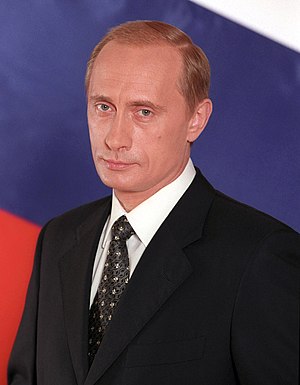 Image via Wikipedia
Image via WikipediaBack in the not so distant past, Turkey towed the line. As a subservient, reliable partner of the West during the Cold War, Turkey could be counted on to do and say whatever NATO and the US wanted. Of course, the new nation, founded only in 1922 after the dissolution of the Ottoman Empire and subsequent revolution led by Kamal Ataturk, was less than 25 years old when the Cold War started. Ataturk, of course, pulled Turkey abruptly into the West and moved its capital from imperial Constantinople to the somewhat desolate Ankara in the center of the Anatolian plateau. In the process, he stripped away the old imperial trappings and mindset which had brought the Ottomans in on the wrong side of the war, albeit with the significant encouragement of Allied incompetence and, not to put too fine a point on it, British arrogance, adeptly exploited by Berlin.
After the end of the Second World War, during which the new nation of Turkey intelligently remained a neutral, the government – out of historical habit and national interests – moved even closer to the West and became the southern bulwark against the equally new Russian empire now called the Soviet Union. Turkish foreign policy, dictated by its generals, became whatever NATO and hence US foreign policy, needed it to be. That was the view from Ankara then.
I suspect one can look to the events of the early 1970s when this easy relationship began to go off the rails in Cyprus as far as Ankara was concerned. Between 1960 and 1974, Cyprus was a unified republic composed of a Greek majority and Turkish minority, mostly located in the north. When Greek nationalists began to agitate for annexation by Greece, and complemented their desires with attacks on the Turkish minority (who retaliated at times, but were significantly outnumbered), Ankara became understandably concerned. Then came the military coup in Greece led by ultra-nationalists which, although a NATO member like Turkey, took a far more aggressive stance toward Cyprus that alarmed Ankara enough to occupy the northern part of Cyprus in 1974. This was intended as a temporary occupation pending a solution to the crises. In 1983 the now military rulers in Ankara created the Republic of Northern Cyprus. The crisis is still pending almost 40 years’ later and temporary has hardened to permanent.
Turkish leadership through this period was anchored on the military which, regardless of the country, is genetically wired not to give up ground. Ankara’s generals clearly viewed the Greeks with suspicion (a mutual perception), were entirely disinclined to cooperate with anyone over Cyprus (including the UN which wanted re-unification) and anyway, liked their new base in the Eastern Med.
Turkish attitudes and interests changed dramatically with the election of the AKP in 2003 and the move toward integration with the EU which considered the division of Cyprus with some distaste. As far as the AKP was concerned, they went above and beyond to please the EU. Unfortunately, the EU was, to say the least, unresponsive and Turkish attitudes have been formed by that lack of EU approval to Ankara’s efforts - in full – to support to the U.N. unification plan proposed by the then secretary general Kofi Annan. Unsurprisingly, nationalists in both Ankara and Nicosia were infuriated with the idea that there might be some solution. There was no reward for the efforts by the AKP and Turkey to accept the UN plan and when a referendum was held in Cyprus, which would have resulted in re-unification, the Turkish population voted overwhelmingly to support it while the Greeks rejected the plan. Shortly thereafter, the EU welcomed the Greeks who voted “no” into the EU club proving to Ankara that, as far as they and Europe were concerned, no good deed goes unpunished.
Ankara’s growing, but still reversible assessment by 2005 was that if it followed the rules of the club it was trying to join, its reward would be rejection. Even by 2003 It was feeling far more confident politically and economically – a trend which began before the AKP took power and originated around the time of the abrupt collapse of the Soviet Union. Turkey viewed that particular event as an opportunity for itself – not NATO or the EU. It rapidly increased its presence in the former Soviet colonies in Turkic Central Asia and Azerbaijan. It ramped up trade and investment with both the Russian Federation and Ukraine and extended its diplomatic clout regionally. Turkey was looking out for its interests first. The Cyprus problem, largely a result in its view of broken promises by the EU, began the ascent to regional power.
This brings us to the recent past and the next post on the view from Ankara.




